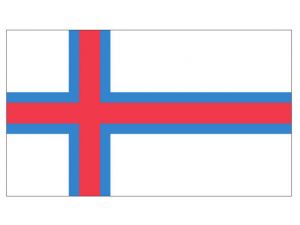Language/Faroese/Vocabulary/Describing-Relationships
| ◀️ Family Members — Previous Lesson | Next Lesson — Basic Adjectives ▶️ |
Introduction[edit | edit source]
In this lesson, we will explore how to describe various relationships in Faroese. Understanding how to talk about relationships is essential in order to communicate effectively in any language, as it allows us to express our feelings and connections with others. Whether it's describing a friendship, a romantic relationship, or a family connection, being able to articulate our relationships in Faroese will greatly enhance our language skills and cultural understanding.
This lesson is part of the "Complete 0 to A1 Faroese Course" and is designed for complete beginners. By the end of this lesson, you will have a solid foundation in describing relationships in Faroese and will be able to confidently talk about the people who are important to you.
Let's begin!
Vocabulary[edit | edit source]
Before we delve into the intricacies of describing relationships, let's start by learning the Faroese words for important family members and relationship terms. Familiarizing yourself with these terms will provide a solid foundation for the rest of the lesson. Take your time to practice the pronunciation and memorize the vocabulary.
Family Members[edit | edit source]
In Faroese, family is an important aspect of society, and there are specific words to describe each family member. Here are some common family members in Faroese:
| Faroese | Pronunciation | English Translation |
|---|---|---|
| mamma | [ˈmɔua] | mother |
| pápi | [ˈpɔaˌpi] | father |
| sonur | [ˈsɔunʊɹ] | son |
| dóttir | [ˈdɔuˌtɪɹ] | daughter |
| systir | [ˈsʏstɪɹ] | sister |
| bróðir | [ˈbɹɔuɪɹ] | brother |
| amma | [ˈamːa] | grandmother |
| afi | [ˈaːvɪ] | grandfather |
| sonsonur | [ˈsɔunsɔnʊɹ] | grandson |
| dótturdóttir | [ˈdɔuˌtʊɹdɔuˌtɪɹ] | granddaughter |
Describing Relationships[edit | edit source]
Now that we have learned the vocabulary for family members, let's move on to describing relationships. Faroese has specific words and phrases to express different types of relationships. Here are some examples:
- Vinur – friend (masculine)
- Vinkona – friend (feminine)
- Kærasti – boyfriend (masculine)
- Kærasta – girlfriend (feminine)
- Kærasti vinur – boyfriend (masculine friend)
- Kærasta vinkona – girlfriend (feminine friend)
- Foreldur – parents
- Foreldur mínir – my parents
- Foreldur tínir – your parents
- Foreldur hansara – his parents
- Foreldur hennara – her parents
- Foreldur okkara – our parents
As you can see, Faroese has specific words to differentiate between masculine and feminine forms, as well as possessive pronouns to indicate ownership or relationship.
Cultural Insights[edit | edit source]
In Faroese culture, family plays a central role and is highly valued. The Faroese people have a strong sense of community and often prioritize spending time with their loved ones. Family gatherings and celebrations are common, especially during holidays and special occasions.
It is important to note that Faroese society has undergone significant changes in recent years, with a shift towards more modern and egalitarian views on relationships. Traditional gender roles are less prevalent, and individuals have greater freedom to choose their own partners and define their own relationships.
Historically, Faroese society was largely influenced by Norse traditions and customs. Marriage was traditionally seen as a contractual agreement between families, and arranged marriages were common. However, in modern Faroese society, romantic relationships are based on mutual love and consent.
Exercises[edit | edit source]
Now that we have learned the vocabulary and cultural insights, let's practice describing relationships in Faroese. Complete the following exercises to reinforce your understanding.
Exercise 1: Match the Relationship Match the Faroese word with its English translation.
| Faroese | English Translation |
|---|---|
| mamma | sister |
| pápi | father |
| sonur | son |
| dóttir | daughter |
| systir | mother |
Solution:
| Faroese | English Translation |
|---|---|
| mamma | mother |
| pápi | father |
| sonur | son |
| dóttir | daughter |
| systir | sister |
Exercise 2: Describe the Relationship Using the vocabulary and phrases we have learned, describe the following relationships in Faroese.
1. Your best friend 2. Your girlfriend 3. Your grandparents 4. Your brother
Solution: 1. Túr besti vinur 2. Tín kærasta 3. Tínir amma og afi 4. Tín bróðir
Conclusion[edit | edit source]
Congratulations! You have successfully learned how to describe relationships in Faroese. In this lesson, we covered vocabulary related to family members and explored various relationship terms. We also gained insights into Faroese culture and its values regarding relationships.
Remember to practice using these new words and phrases in your everyday conversations to reinforce your learning. Understanding and being able to describe relationships will greatly enhance your communication skills in Faroese and deepen your cultural understanding.
Keep up the great work, and see you in the next lesson!
Sources[edit | edit source]
Other Lessons[edit | edit source]
- Family Members
- Common Foods
- Clothes
- Introducing Yourself
- Numbers 1 20
- How to Say Hello and Greetings
- How to say Good Bye?
- Express Surprise
- Count to 10
| ◀️ Family Members — Previous Lesson | Next Lesson — Basic Adjectives ▶️ |

